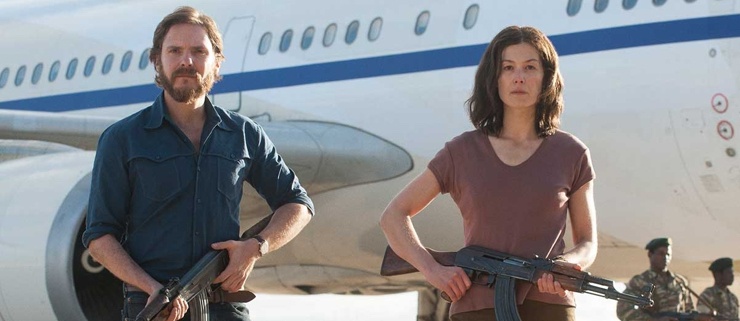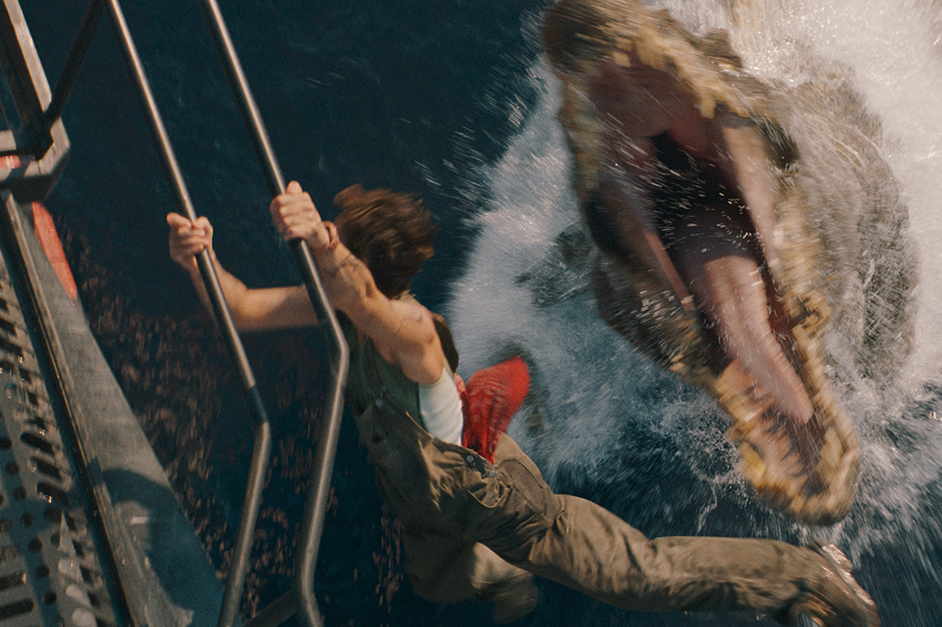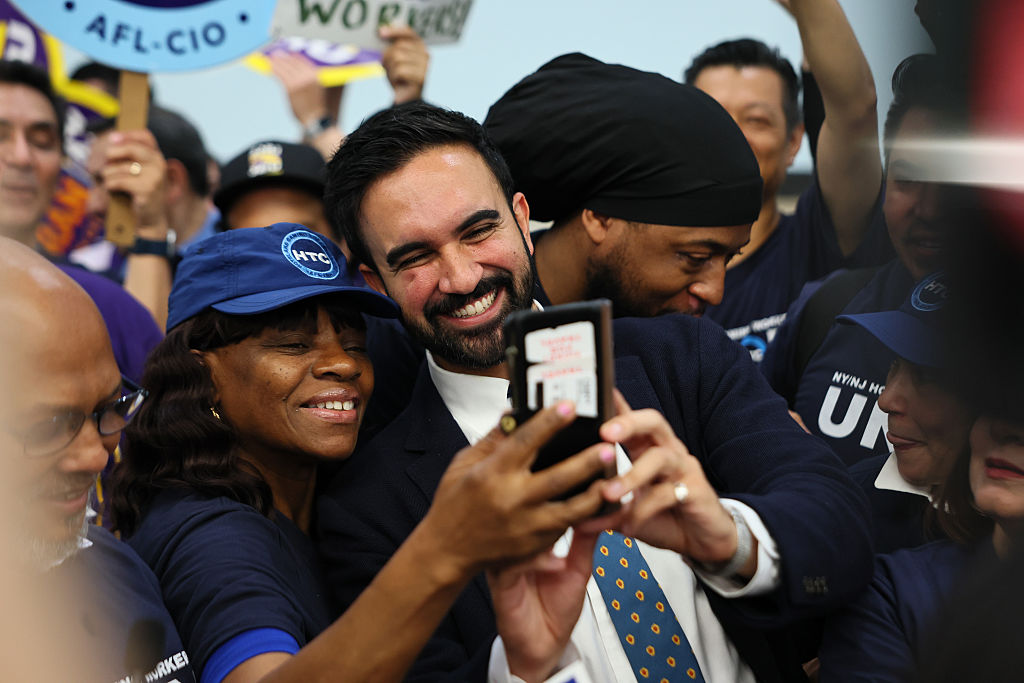It was only Seven Days in Entebbe, but it felt like an eternity. The rescue in July 1976 by Israeli commandos of 102 Jewish and Israeli hostages from Palestinian and German terrorists at Entebbe airport in Uganda was a scriptwriter’s dream: a three-act drama of crisis, complication and resolution, in which the good guys won—good guys that is, unless you were rooting for the hijackers to murder 106 men, women and children for no other reason than they were Jewish. Three films were in production almost immediately. None were made by Arabs or Germans.
Victory at Entebbe was rushed out in December 1976, with Anthony Hopkins as Israeli prime minister Yitzhak Rabin, Burt Lancaster as defence minister Shimon Peres, Kirk Douglas and Elizabeth Taylor as lead hostages, and Julius Harris in the plum role of Idi Amin, the mad Ugandan tyrant who fed his enemies to the crocodiles. NBC’s made-for-television Raid on Entebbe (1977) had Peter Finch as Rabin, Charles Bronson as Chief of Staff Dan Shomron, who led the planning, and Yaphet Kotto wielding Amin’s fly whisk and crazy laugh. The same year saw the Israeli-made Operation Thunderbolt. This had Klaus Kinski going full Baader-Meinhof as the Revolutionary Cell hijacker Wilfried Böse, and Rabin and Peres, through the inter-cutting of newsreel footage, as themselves. That Operation Thunderbolt should not be confused with Operation Thunderbolt (2000), the documentary which describes in more reliable detail Israel’s staggering feat of arms and nerve, and has interviews with many of the surviving participants, though not, unfortunately, Idi Amin, who by then had retired to the Jeddah Novotel on a pension from the Saudis.
The movie business loves a remake, but the Entebbe story is too familiar. All that remains is for someone to make Moral Defeat at Entebbe. Step forward José Padilha, who should not be confused with Jose Padilla. Padilha is the Brazilian director who remade RoboCop. Padilla is the homegrown Islamist currently serving a twenty-one year stretch for trying to make a dirty bomb. If he behaves himself and gets a DVD player as a privilege, he would probably enjoy Seven Days in Entebbe, at least until the last five minutes.
The unique selling point of Seven Days in Entebbe is that, instead of focussing on the suffering of the hostages or the bravery of their rescuers, it focuses on the consciences of the hostage-takers and the Israeli politicians. We see two odd couples, the German duo of Böse (Daniel Brühl) and Brigitte Kuhlmann (Rosamund Pike), and the Israelis Peres (Eddie Marsan) and Rabin (Lior Ashkenazi). The villain of the piece is not one of the hijackers, but Shimon Peres. Marsan, like a geriatric satyr with prosthetic eyelids and his trousers belted around his nipples, walks as though wearing a truss. This, we infer, symbolises Peres’ refusal to negotiate with terrorists.
This is the least of the symbolic indignities to which the cast are subjected. In a morality play without any morals, characterisation collapses beneath ill-defined metaphysical burdens. The Palestinian hijackers are not given enough screen time, and the Germans too much. Kuhlmann gets in touch with her inner fascist, but Böse has a crisis about sorting the Jewish hostages from the non-Jews. “I’m not a Nazi!” he says, but goes the distance anyway, because nihilists really are worse than Nazis. Brühl and Pike do their best but—call me a bourgeois sentimentalist—it’s hard to care too much about the crocodile tears of terrorists who threaten to execute children.
For similarly futile reasons that crash well short of philosophy, Padilha makes the boldly stupid decision to intercut footage of an Israeli modern dance troupe with the commandos’ scenes. Every time the procedural gets going, the rhythm stalls and we’re back with the dancers who, for reasons never fully explained by their choreographer or Idi Amin, are dressed as Orthodox Jews. At what should be the film’s climax, when the door of the Hercules opens and the commandos roar out onto the tarmac, the dancers start disrobing. This cross-cutting continues throughout the shoot-out. This kills the rhythm of the film. That, I suppose, is one way to obscure the evident truth of a story in which the good guys win.
Perhaps Padilha wants to emulate the cutting between the Christening and the Mob killings in the first Godfather. Perhaps he lifted this from Amos Gitai’s Kippur (2000), in which scenes of soldiers floundering in mud as they carry a wounded comrade are intercut with scenes of a couple making love and, presumably for complex artistic-philosophical reasons, rolling around in paint. Perhaps Padilha wants us to think of the hostage rescue as performance art, in the way that Stockhausen advised us think of 9/11 as ‘the greatest work of art imaginable’. But Padilha lacks the cinematic rudiments, a feel for rhythm and plot.
Seven Days in Entebbe has the same nostalgia for the dilemmas of Seventies’ terrorism as Munich and Carlos and The Baader-Meinhof Complex. It’s not just nostalgia for the days when jet travel was novel, sideburns were long, and everyone’s clothes crackled with nylon static. It’s a pining for a time when the terrorists, like the terrorised, had secular ideologies, and there was still hope of negotiating with them. You know, the good old days. When the terrorists only killed Jews, and the European governments could feed the crocodile, by paying off the hijackers and helping them on their way to Libya or Iraq, where they could plot another atrocity.
Moral confusion is the poor man’s complexity. There is infinite poverty of thought here—so much that Padilha, given a captive if not hostage audience, fails to communicate even his puerile moral equivalences. The only strong performance in this pompous, pretentious and sloppy film comes from Nonso Azonie as Idi Amin. Connoisseurs of gratuitous remakes will note that some of Idi’s fancy dress uniforms are reminiscent of Azonie’s turn as Captain of the Guards in the Cinderella remake from 2015.

























